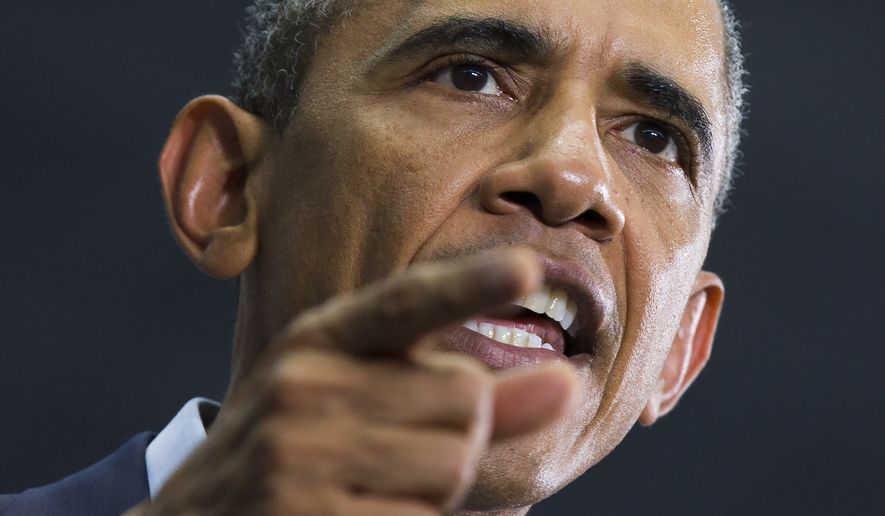In a new interview, President Obama said courts should allow affirmative action for the foreseeable future, but he believes he can do more for the cause of racial justice with policies to help black students obtain high school diplomas.
The president said former Supreme Court Justice Sandra Day O’Connor’s guidance in 2003 that affirmative action should expire within 25 years “was sort of a ballpark figure in her mind” and not a binding rule. The interview with The New Yorker magazine hit newsstands Monday.
Mr. Obama told author Jeffrey Toobin that racial preferences should be allowed to continue “if the University of Michigan or California decides that there is a value in making sure that folks with different experiences in a classroom will enhance the educational experience of the students, and they do it in a careful way.”
The president added, “most of the time the law’s principal job should be as a shield against discrimination, as opposed to a sword to advance a social agenda, because the law is a blunt instrument in these situations.”
The administration told colleges and universities last year that they can continue to consider race in their admissions programs to achieve greater diversity, as long as they meet strict guidelines. That guidance followed the Supreme Court avoiding a major ruling in an affirmative action case involving a white student who was denied admission to the University of Texas’s main campus.
Student Abigail Fisher argued that she was denied admission because of the school’s affirmative action policy. But the Supreme Court sent the case back to a lower court for review, saying schools could include race as a factor if no other “race-neutral alternatives” for admissions would achieve diversity.
The president told The New Yorker that the biggest issues concerning race are “rooted in economics and the legacy of slavery,” which have created “vastly different opportunities for African-Americans and whites.”
“I understand, certainly sitting in this office, that probably the single most important thing I could do for poor black kids is to make sure that they’re getting a good K-through-12 education,” Mr. Obama said. “And, if they’re coming out of high school well prepared, then they’ll be able to compete for university slots and jobs. And that has more to do with budgets and early-childhood education and stuff that needs to be legislated.”
Mr. Obama also said he does not want to become a Supreme Court justice after he leaves office in 2017.
“When I got out of law school, I chose not to clerk,” he said. “Partly because I was an older student, but partly because I don’t think I have the temperament to sit in a chamber and write opinions. … I think being a justice is a little bit too monastic for me. Particularly after having spent six years and what will be eight years in this bubble, I think I need to get outside a little bit more.”
The president, a former law school professor, said he misses that career.
“I love the law, intellectually,” he said. “I love nutting out these problems, wrestling with these arguments. I love teaching. I miss the classroom and engaging with students.”
• Dave Boyer can be reached at dboyer@washingtontimes.com.




Please read our comment policy before commenting.